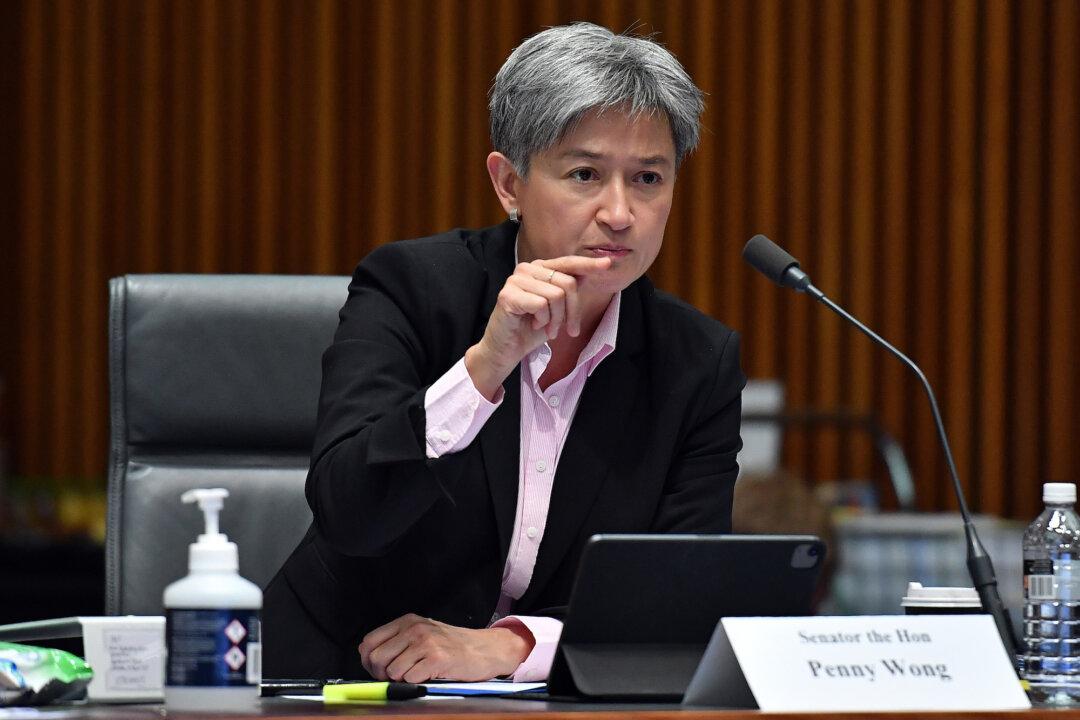Australia’s Shadow Foreign Minister Penny Wong has accused the government of “amping up” the prospect of war with Beijing over Taiwan and politicising the country’s foreign policy.
In remarks to the Australian National University on Nov. 23, Wong outlined the Australian Labor Party’s foreign policy initiatives and pointed out failings in the current government’s approach.





